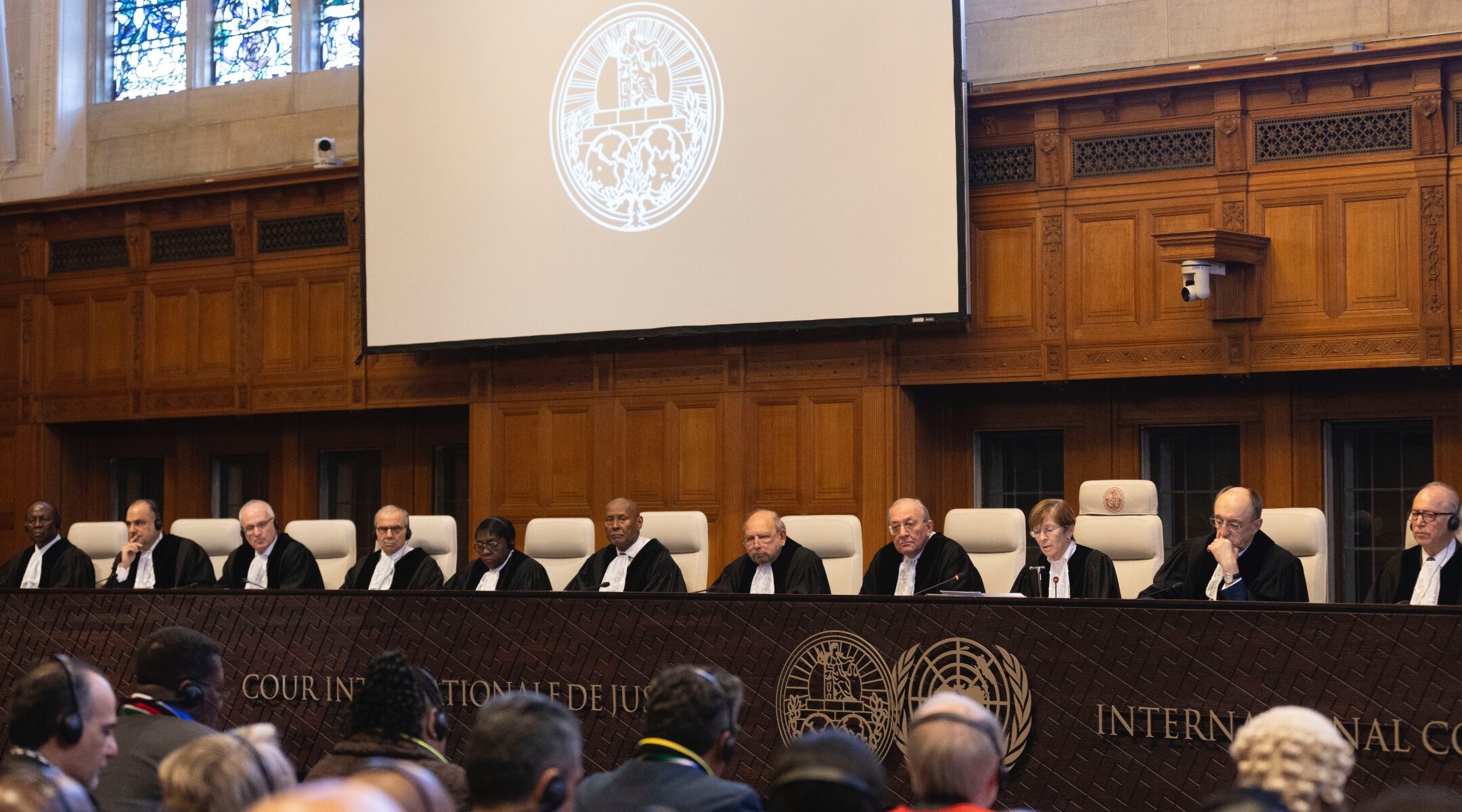Nearly 200 genocide, Holocaust and legal scholars are calling on the International Association of Genocide Scholars to retract its resolution finding that Israel is committing genocide in Gaza.
In a letter finalized on Friday, the scholars charge the association with “critical errors” in its resolution, including failing to consider Hamas’ role in the deaths in Gaza and whether any explanation other than an intent to harm an entire group can explain the crisis there.
“It is critical that we not water down the legal elements of genocide for the purpose of advancing ideological positions and bias,” the letter says. “Holocaust and genocide scholars can have legitimate concerns about Israeli conduct in Gaza without working to disparage the very legal standards that exist to protect people from these crimes.”
The letter was initiated by Elliot Malin, a Nevada attorney. The letter’s signatories include former U.S. Department of Justice war crime prosecutor Eli M. Rosenbaum, former Hague legal fellow Isaac Amon; the Holocaust Museum of South Florida; and the pro-Israel attorney Alan Dershowitz, as well as several Holocaust educators and survivors’ children.
The letter represents an escalation of criticism of IAGS since its widely publicized resolution announced on Monday. In a volley of op-eds and elsewhere, the critics lambasted the group’s membership and low voter turnout as suggesting a scholarly consensus that did not exist. Some noted that membership required only a low-cost purchase and that the group included a number of people with questionable credentials alongside reputable scholars; the group’s membership list is no longer available online.
On Thursday, IAGS responded to the criticism, writing in a lengthy statement that its membership inbox had been spammed with messages employing fake names including “Adolf Hitler” and email addresses such as “f—kiags@retards.”
“The IAGS general email and members of the Executive Board have received a great deal of abusive hate mail and social media posts this week,” the statement read. “Such responses are clearly unacceptable, and create an environment of harassment, bullying, and abuse.”
Accusations that Israel is committing a genocide in Gaza have long been launched against the country over its nearly two-year war in the enclave, and have gained traction even among some of Israel’s staunchest supporters in recent months as Israel has continued its offensive following the end of a ceasefire earlier this year. Israel rejects the allegation and condemned the IAGS resolution as an “embarrassment to the legal profession and to any academic standard.”
The group defended itself against criticism that the resolution had only been passed by a voter turnout of 28% of its membership, writing that members had been given 30 days to vote, and that the figure was within its typical range of votes for a resolution.
IAGS also responded to critics who had scrutinized the group’s members, writing that the inclusion of “artists, community scholars, NGOs, survivors, and others” was intended to “build a community of different populations.”
Members of IAGS who have received backlash include Francesca Albanese, the United Nations special rapporteur on the occupied Palestinian territories, whom Israel and the Trump administration have accused of “virulent antisemitism and support for terrorism.”
“If we err, it’s on the side of inclusivity,” the statement read. “No system is perfect, but ours reflects our value of inclusion. The fact that this very democratic, inclusive policy is being exploited and criticised by trolls demonstrates their ignorance at the structures of scholarly organizations, and flies in the face of IAGS’ values (which attempts to include and champion minority voices/global majority voices that may not “look like” what we expect “expertise” to be).”
The letter calling on IAGS to retract its resolution said the association had fundamentally distorted a definition firmly established in international law in order to reach an ideological conclusion
“To persist in such distortion is to forsake the most elementary standards of law and scholarship,” the letter says. “It reduces the Association to farce, erodes the integrity of genocide studies, and undermines the very meaning of the crime itself.”
JTA has documented Jewish history in real-time for over a century. Keep our journalism strong by joining us in supporting independent, award-winning reporting.






